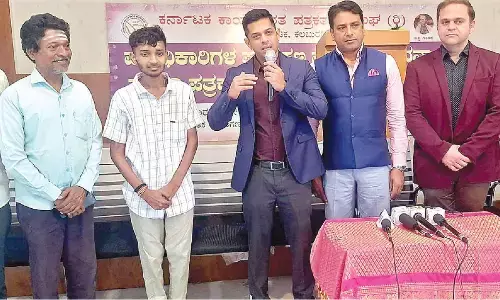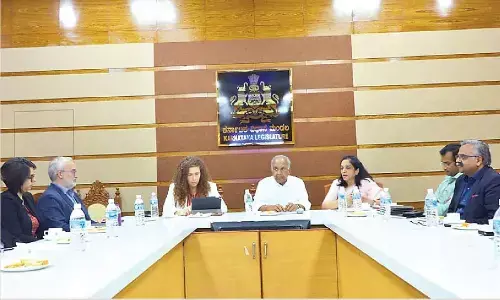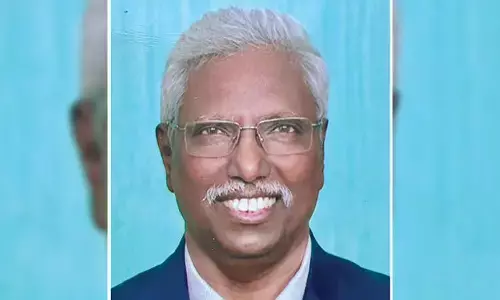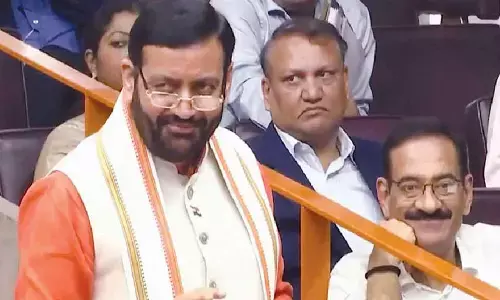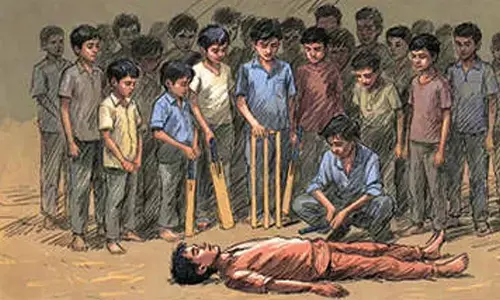Between food and the mouth - identity, history and religion
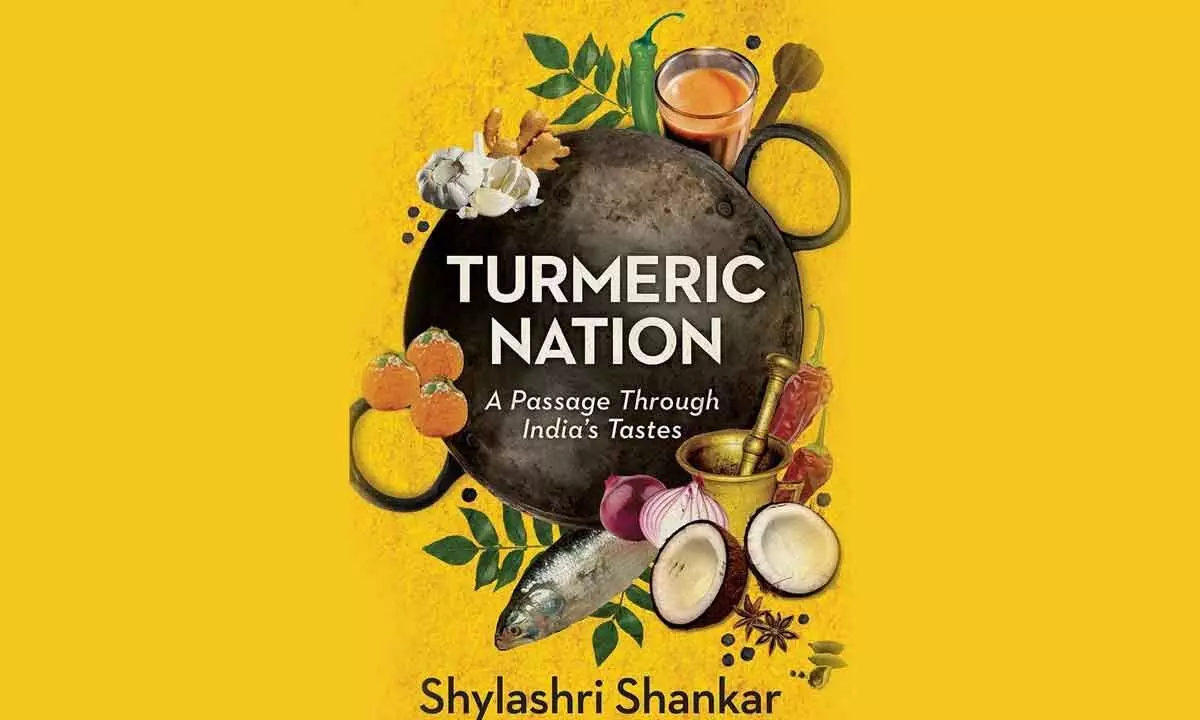
If we are what we eat, then what are we? This collection of essays, ‘Turmeric Nation: A Passage Through India’s Tastes’ (Speaking Tiger) looks at food through tradition, religion, history, habits, genetics, geography and habits by author Shylashri Shankar, a Delhi-based senior fellow at the Centre for Policy Research serves as an assertion that it is only through hybridity and not uniformity that the true essence of India comes forth
If we are what we eat, then what are we? This collection of essays, ‘Turmeric Nation: A Passage Through India’s Tastes’ (Speaking Tiger) looks at food through tradition, religion, history, habits, genetics, geography and habits by author Shylashri Shankar, a Delhi-based senior fellow at the Centre for Policy Research serves as an assertion that it is only through hybridity and not uniformity that the true essence of India comes forth.
“And I actually feel very strongly about it. The fact that we are not uniform truly defines us, and this holds true for our food culture as well,” Shankar tells IANS at the ongoing first edition of Sikkim Art and Literature Festival (May 6-8) organized by the state government in collaboration with Teamwork Arts.
While the country may have been subjected to several conquests in the past, she feels none of them completely flattened the way of life here but surely adopted several cultural aspects of this land.
Citing the examples of Mughals, who introduced spices in their food after coming in contact with local food here, and developed many new recipes she adds, “By the way, it is Muglai food that is known as Indian food abroad. It is incorrect to talk about the notion of food without taking into account the way it incorporates so many different meanings and makes it is own -- that is where the taste comes from.”
Looking at different identities created by food as mosaics and examining diverse mosaics, the author also looks at food through different religions. “While Muslims used Unnani and Hindus, Ayurvedic principles, in the past, before modern medicine took over, there was also a holistic way of what to eat. The cooking style was about balance. While having a mango drink, you needed to balance it with something else, or no fish in the rainy season etc.
It is also about how it impacts many things about our personalities and the way we return to our childhood foods. You keep returning to comfort food but also experiment. And let us not forget, in the past, food was a major marker of one’s identity -- caste, religion, and hierarchy. The Brahmins would not eat non-vegetarian, while Kshatriyas and others would.”
But what made a political analyst write about food? Shankar asserts it has always held a peculiar fascination for her, and for the past 25 years, she has been reading food memoirs and recipe books -- trying out new things at any given time.
Calling herself a novice, she feels the questions she has would be similar to what a lot of other people too, the author adds, “And I just followed those queries into different streams for this book. I went to science, anthropology, and archaeology and looked at the ways the scholars had answered the questions.
That is what makes ‘Turmeric Nation’ slightly different -- the approach of as a novice -- so it is highly experimental, thus some essays are better than the others.” And now the author wants to focus on something she has always been fascinated by -- crime fiction. In fact, her manuscript is already with her agent in London.
“However, it has been really hard to give up my training as an academician. While the latter requires you to be upfront, crime fiction demands you hold on till the end.”




